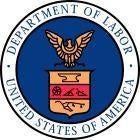Last May, 28-year-old Adrien Zamora fell 40 feet from a scaffold while restoring an 11-story building in New York. It was his first day on the job, and he had not been given a fall protection harness or the necessary safety training. He left behind a wife and their two young daughters.
Unfortunately, this loss is only one of many such tragedies that happen every year. Falls are the leading cause of death in construction, accounting for one-third of all work-related deaths in the industry.
Many of the workers who are killed and injured on the job are like Adrien – temporary workers who perform the most dangerous jobs and often have limited English proficiency, and who don’t always get the training and equipment they need to do their jobs safely. As Assistant Secretary of Labor for Occupational Safety and Health Dr. David Michaels has said, “All workers have the right to go home safe and sound at the end of the day, whether they’ve been on the job one day or 25 years.”
Worker injuries, illnesses and deaths don’t just hurt workers, families, co-workers and communities. They also take a great toll on our economy. Our nation’s largest provider of workers compensation data — the National Council on Compensation Insurance — found that from 2005 to 2007, 38 states reported that falls from elevations cost insured roofers $54 million per year. The average cost to an employer when a roofer falls from an elevation is about $106,000 per injured roofer – that’s enough to put a small roofing company out of business.
Yet falls can be prevented, and lives can be saved when employers take three simple steps: plan, provide, train. Plan ahead to get the job done safely, provide the right equipment for the task at hand and train everyone to use the equipment safely.
To spread the word, OSHA is kicking off a second year of the Campaign to Prevent Fatal Fallswith its partners, the National Institute for Occupational Safety and Health, and the Center for Construction Research and Training.
We know that the real difference to be made is in the communities where workers are getting hurt, and we can’t do that alone. So we’re calling on you – local employers, stakeholders and community and faith-based organizations – to join the campaign to prevent falls. If you are an employer, start by renewing your commitment to making sure workers are safe and provided the right equipment and training. Community and faith-based organizations can help by spreading the word to members and the local community.


 />i
/>i



